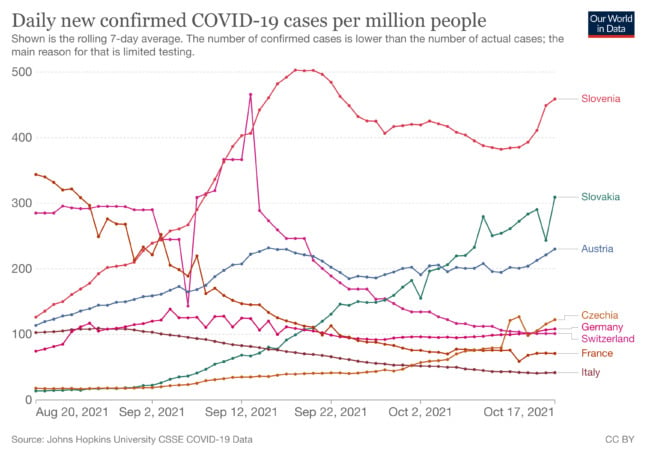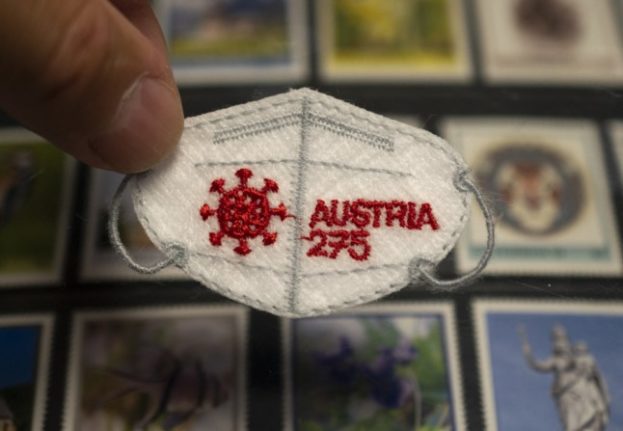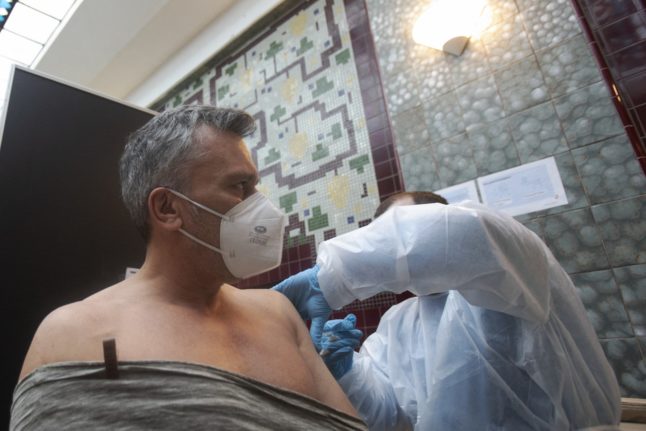Overview of the Covid-19 situation in Austria
As of October 22nd, the 7-day incidence rate (new infections per 100,000 people) was 212, while three regions were marked as ‘very high risk’: Upper Austria, Lower Austria and Salzburg.
A total of 26,490 people in Austria were currently positive for Covid-19 on October 22nd, with 968 people being treated for the disease in hospital.
According to the Ministry of Health, a total of 3,648 new cases of Covid-19 were reported in the last 24 hours as of October 22nd, not far from the highest ever one-day total in March 2020 (3,895). Since the start of the pandemic, 11,220 people have died in Austria of Covid-19.
A total of 5,828,541 people (65.2 percent of the total population) have received at least one Covid-19 vaccine dose and 5,540,036 (62 percent) have received two doses as of October 22nd.
Rules in place at the moment include an FFP2 mask mandate for everyone on public transport and in supermarkets and pharmacies, and proof of 3G (vaccination, recovery, or negative test) needed for entry to many businesses, with stricter rules in both Salzburg and Vienna. Find out about the rules in detail at the links below:
- What are the Covid-19 rules and regulations in Austria now?
- What are the Covid-19 rules and restrictions in Vienna now?
- What are Salzburg’s current Covid-19 rules and restrictions?
How does Austria compare to its neighbours?
The chart below from Our World in Data shows how the number of reported daily Covid cases in Austria compares to those in neighbouring countries. As the chart shows Austria’s rates have been higher than most of its neighbouring countries and continue to rise.

Two more states turn ‘red’ due to high Covid risk
Lower Austria and Upper Austria have both been classed as ‘red’ or ‘very high risk’ as of Thursday, while Salzburg’s ‘red’ status was renewed.
Only Burgenland is now ‘yellow’ or medium risk, with the rest of the country classed as ‘orange’ or high risk.
Unlike in some European countries, the traffic light classification does not in itself have any impact on the measures in place in a region, but is intended as a signal to residents and local authorities.
New chancellor Alexander Schallenberg said on Thursday that he planned to meet with heads of the different regions and Health Minister Wolfgang Mückstein to discuss potential future measures to step up Austria’s sluggish vaccination rate.
Vienna opens 24-hour Covid testing station
The city of Vienna is expanding its Covid-19 testing options after Austria announced the introduction of a 3G requirement (proof of vaccination, recovery or a negative test) for workplaces starting from November. The Ernst Happel Stadium in the capital’s second district will offer both antigen and PCR tests and will be open 24 hours a day.
In order to take advantage of the facility, you will need to register with Stadt Wien and book an appointment, but this can be done at short notice.
As The Local has previously reported, the 3G workplace rule was only able to get the political support it needed after the government agreed to continue offering tests for free beyond the end of October.
Exit tests introduced for Melk
From Saturday October 23rd, proof of 3G will be required to leave the town of Melk in Lower Austria after the seven-day incidence rate (new Covid-19 cases per 100,000 people) topped 600.
Meanwhile, the region of Salzburg requires proof of 2.5G (vaccination, recovery, or a negative PCR test) in order for residents or visitors to leave the municipalities of Adnet and Annaberg-Lungötz, starting from October 20th until at least November 3rd. This comes after the requirement was introduced for the town of St Koloman last week, initially until October 31st.
Vienna extends its stricter rules
The mayor of Vienna announced on Thursday that the region would be extending its stricter Covid-19 restrictions, including FFP2 requirements in more places and a 2G (vaccination or recovery only, not negative tests) entry rule for evening dining and bars. The rules were originally set to expire on October 31st but will now apply further into the winter. Here’s our full news article on the extension of these rules.
New national Covid rules announced for winter
New rules will come into effect in November including a 3G requirement for workplaces, a 3G requirement for Christmas markets and cable cars. You can read about the rule changes in more detail by clicking here.
Demand for fake vaccine certificates on the rise
The use of 3G entry rules means that doctors are experiencing an increase in request for the certificates to be falsely issued, national broadcaster ORF reports. One GP in the Carinthia region told the broadcaster he received around ten requests every month, but ORF notes there is no evidence yet that any such requests have been granted. This would be a criminal offence for both the doctor and patient.
‘Alles gurgelt’ tests to launch in Styria
In Vienna, more than 10 million at-home PCR tests have been used, called ‘Alles gurgelt’ (everyone gargles) — of which 0.49 percent returned a positive result. From November, the tests will also be rolled out in the Styria region.
Residents will need to download an app, then they can pick up the tests at pharmacies, carry out the test at home (including filming yourself gargling) and hand in the test to one of 460 drop-off points across the region including at pharmacies and Spar supermarkets. The results will be available within 24 hours.
French-Austrian lab reports positive results from new Covid vaccine trials
Potential good news in the fight against Covid-19: Franco-Austrian biotech lab Valneva said that its Phase 3 clinical trials showed “positive” results. The French government has said that the European Union was still in negotiations to buy the vaccine, after the UK government terminated its own supply deal last month, which is so far the only order for Valneva.
We have started regular updates on the Covid-19 situation in Austria as part of our effort to keep Austria’s English-speaking population updated on the news you need to know. If you have questions or feedback, you can contact us at [email protected] or by submitting your question using the form below.



 Please whitelist us to continue reading.
Please whitelist us to continue reading.
Member comments